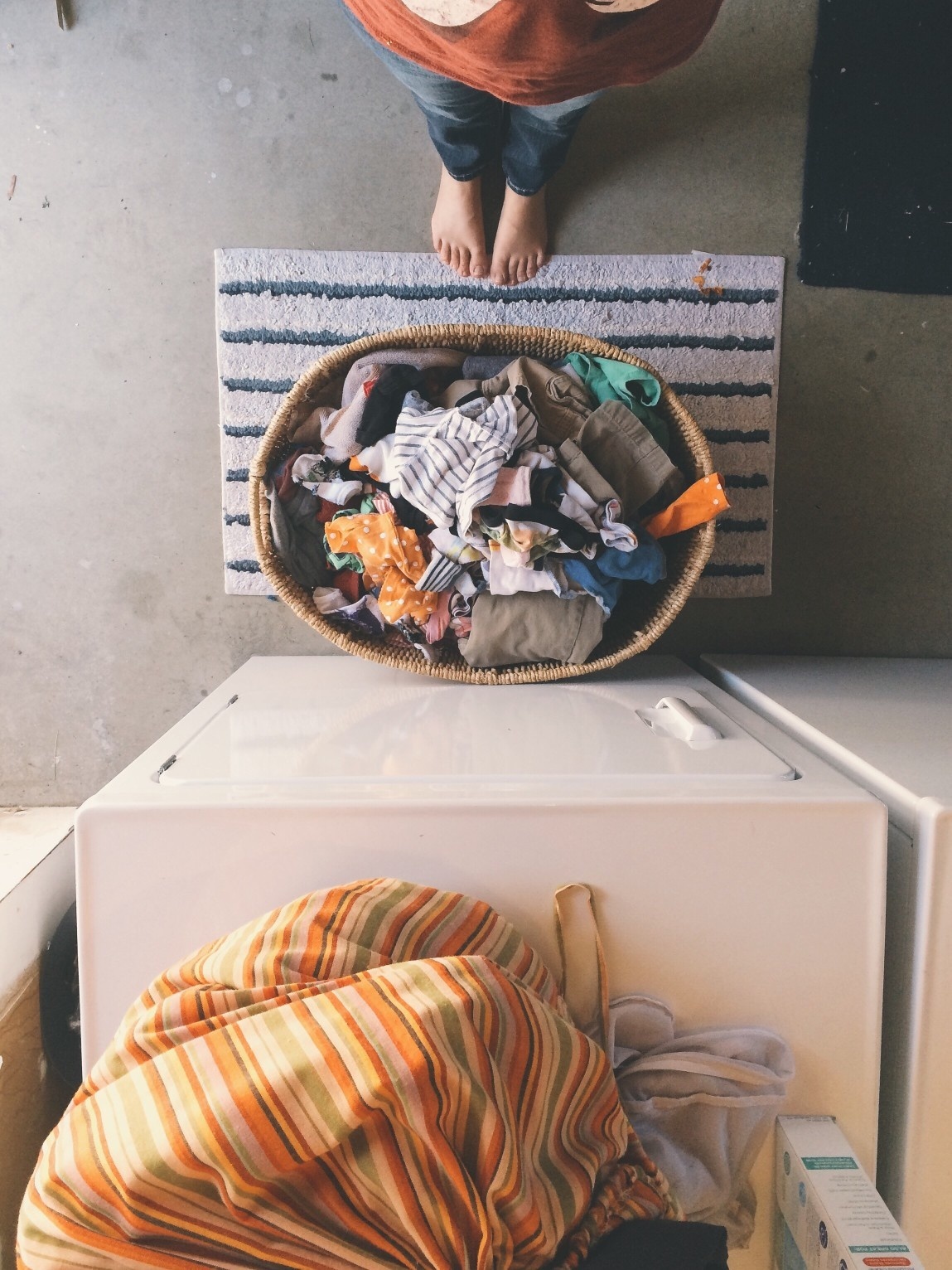You Should Do This Every Time You Buy New Clothes
Sorry, it's not wear them right away
Ready for it? It’s super easy. WASH THE CLOTHES! It can be tough to restrain yourself and not just wear that new thing right away, but trust us, washing first is worth it! And, it doesn’t take too long. If you are like me, part of the motivation for buying new clothes was because everything you like to wear was dirty, so you probably have to do a wash anyway.
Think about all the things that could have gotten on the clothing before it gets to your closet. Before it becomes that cute t-shirt, or dress, or pair of socks, or whatever, it was yarn or a fabric of some sort. Chances are the strands were sprayed with something before it became what it is today, even if it’s natural cotton. Often times, the threads are sprayed just so they can be turned into fabrics more easily. All of this is aside from the dyes to make the fabric the perfect color.
Then, once it is that cute new thing, many times it has been doused in formaldehyde to reduce the chances that it will get moldy or super wrinkly in transit from that far away country it was born in. (1) (2) Usually the clothes travel on a boat, which means lots of moist conditions, just what mold loves.
Other chemicals commonly found on clothing include nonylphenol ethoxylate, antimony, and organotins. (3) All of these chemicals on clothing interact in different ways with your body. Generally, if they react negatively, you will notice a rash from direct contact, but long-term repeated contact, possibly for those who work in retail stores, can lead to more serious reactions like interfering with chemical messengers in the body that control things like growth, metabolism, and fertility or the ways cells multiply, which can lead to cancer, infertility, metabolism disruption, to name a few. (1) So, for the sake of your health, you can probably wait until the next time you do laundry (or start a load of laundry), before you wear that new item.

All of the chemicals mentioned before, ignores the fact that often times you aren’t the first or only person to try on a particular piece of clothing. (2) It is possible that those who tried the item on before you didn’t shower that morning, or had a bacterial infection, maybe lice, or fungus nails, or who knows what else. So, if the chemicals seeping into your clothing then rubbing off onto your skin didn’t worry you enough, maybe that thought will tip you over the edge to drop your new threads right into the washing machine.

While these chemicals are on almost all clothing, it is most important to wash before wearing clothing that has direct contact with your skin or that you sweat in. So, definitely wash those new yoga pants, and don’t pass on the socks, t-shirts, underwear, and jeans. While the chemicals are woven into the fabric, that first wash really does help remove a lot of them. It is probably less important for items like coats or blazers that generally don’t touch your skin.
For items that aren’t easy to wash or say dry clean only, try airing them out for a while before you wear them. Sending it to the dry cleaner first will only put fresh chemicals from the dry cleaning process on the clothes. Some places offer wet cleaning which is a special process to clean delicate clothes without the harmful chemicals of dry cleaning. You can ask your local dry cleaner if this is an option they provide or see if other locations with this process exist in your area.
So, try to plan ahead, and make sure you have an hour or two minimum to do a load of wash before you desperately need to wear your new outfit.
1) De Groot A, Le Coz CJ et al. Formaldehyde‐releasers: relationship to formaldehyde contact allergy. Part 2. Formaldehyde‐releasers in clothes: durable press chemical finishes. Contact Dermatitis. March 3, 2010
2) Cairns, C and Bailey, A. Wash and then wear; unwashed clothes may have formaldehyde. Consumer Reports News: November 12, 2010.
3) Greenpeace East Asia Report. A Little Story About the Monsters in Your Closet. January 2014.
